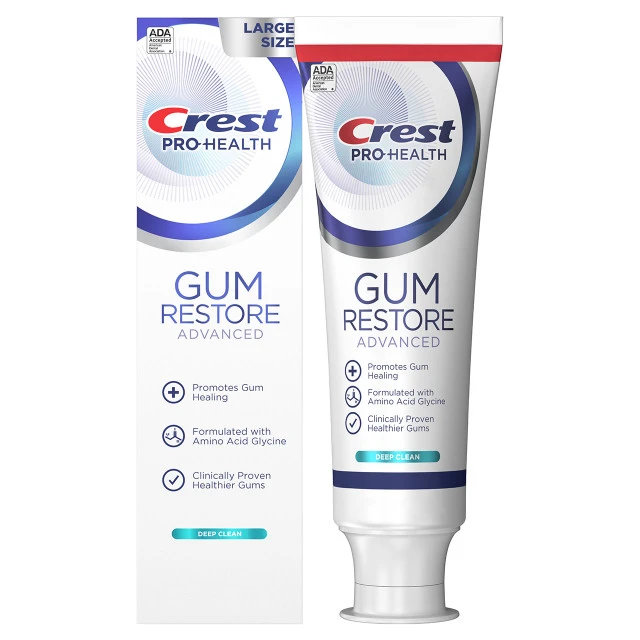Metallic Taste in Mouth: Causes, Symptoms, and Treatments

Summary
Key Takeaways
- A metallic taste in the mouth can result from a number of factors:
- Medications
- Infections
- Pregnancy
- Nutritional deficiencies
- Poor oral hygiene
- Underlying health conditions
- Actions to help alleviate metallic taste include maintaining good oral hygiene, staying hydrated and making dietary adjustments.
- Consult a healthcare professional if the metallic taste persists or is accompanied by other concerning symptoms.
- A metallic taste is often harmless, but it’s important to pay attention to your body’s signals.
Table of Contents

This blog has been reviewed and approved by Dr Robert Lee, a dental professional of 35 years
LEARN MORE >Key Takeaways
What is a Metallic Taste?

A metallic taste in your mouth is when foods or drinks taste like metal, even if they shouldn't. It's medically known as dysgeusia. This altered taste perception can be subtle or strong and may affect your appetite or enjoyment of food. Even though it's annoying, it's usually harmless. But it can sometimes signal underlying health conditions, including infections.
Causes of a Metallic Taste

A metallic taste can arise from a number of factors including:
- Medications and Supplements: can alter taste perception by affecting taste buds or saliva composition, leading to a metallic taste as a side effect. These include antibiotics such as Metronidazole and Tetracycline. Also, blood pressure medications such as Captopril and diabetes medications like Metformin. Even dietary supplements, especially those containing iron, zinc, calcium, or copper, such as multivitamins
- Pregnancy: Hormonal changes can affect taste perception and lead to a temporary metallic taste, particularly in the first trimester. This is known as pregnancy dysgeusia and often resolves after the first trimester
- Infections and Respiratory Conditions: Can alter taste perception, including upper respiratory infections, colds, and sinus infections. Inflammation and mucus congestion can also affect taste bud function, disrupting the signals sent from your taste buds to your brain.
- Nutritional Deficiencies: Deficiencies in certain nutrients can lead to a metallic taste, most commonly a severe zinc deficiency. In some cases, a Vitamin B12 deficiency may also be a factor. These deficiencies can impair the function of taste receptors, resulting in a metallic or altered taste
- Poor Oral Hygiene: Gum disease, infections, and overall poor oral hygiene are all factors. Also, gingivitis or periodontitis can lead to bleeding gums, which release iron into the mouth and produce a metallic taste. Oral Thrush, a fungal infection, can introduce yeast and toxins into the mouth that alter taste.
- Neurological Disorders: Conditions that affect the nervous system can interfere with the nerves responsible for taste by disrupting the signals between taste buds and the brain and leading to a persistent metallic taste. These disorders can include multiple sclerosis, Bell’s palsy, Alzheimer’s disease, and dementia.
- Cancer treatments: Chemotherapy and radiation treatments can alter taste perception, especially when targeting the neck and head. They can damage taste buds and salivary glands, leading to a metallic taste known as “chemo mouth.”
- Chemical Exposure: Inhaling or ingesting certain chemicals, like mercury and lead can lead to a metallic taste, often due to heavy metal poisoning. This can occur through environmental exposure or ingestion of contaminated food or water and requires medical attention.
Recognizing the Symptoms
The primary symptom is a persistent metallic flavor in the mouth. But there are additional symptoms, too. If you have one or more that persist, it might be time to talk to your dentist or dental hygienist.
Do You Have?
- Dry mouth
- Altered or reduced sense of taste
- Sore or bleeding gums
- Fatigue or weakness (in cases of nutritional deficiencies)
- Congestion or sinus pressure with respiratory infections
- Neurological symptoms (in cases of neurological disorders)
Treatment Options
There are a lot of treatment options you can do at home. They're relatively simple but could help solve the issue.
Improve Oral Hygiene
Brush your teeth at least twice a day with toothpaste that contains stannous fluoride and floss daily. Brush your tongue to remove accumulated bacteria.
You can also use an antibacterial mouthwash to help reduce the metallic taste.
Stay Hydrated
Drink plenty of water throughout the day. It helps keep your mouth moist and can dilute any substances causing the metallic taste.
Adjust Your Diet
Eating foods that mask the metallic taste can help, such as citrus fruits, sour foods such as pickles, and foods with vinegar.
Avoid food that may intensify the metallic taste, including spicy, overly sweet, or processed foods.
Use Non-Metallic Utensils
Using non-metallic utensils can prevent the metallic taste from being intensified during meals, so consider switching to wood, bamboo, or plastic.
Consult Your Healthcare Provider
If the metallic taste persists or is bothersome, make an appointment to determine if there is an underlying condition. These could include a nutritional deficiency, a side effect from medication, or an infection. Then they can plan an appropriate treatment, whether that's a medication adjustment or a supplement recommendation.
When to See a Doctor
A metallic taste is often harmless. However, it is important to consult a healthcare provider if the taste persists for more than a few days, or if it's accompanied by other symptoms such as fatigue, weight loss, or changes in appetite. Also reach out to them if you suspect the metallic taste may be related to a medication or supplement you're taking.
Summary
A strange, metallic taste in your mouth is pretty common. Known as dysgeusia, a metallic taste in your mouth can be more than just an unpleasant sensation, but can also signal an underlying health issue, ranging from a simple infection to a more complex condition. There are a wide range of things that can cause a metallic taste in the mouth. The list includes medications, infections, pregnancy, nutritional deficiencies, poor oral hygiene, or underlying health conditions.
There are some easy things you can do to help alleviate the metallic taste. These include improving or maintaining good oral hygiene. This has many health benefits, including alleviating the metallic taste. Also staying hydrated and making dietary adjustments can be effective.
Despite your best efforts, if the metallic taste persists or is accompanied by other concerning symptoms, consult a healthcare professional. A metallic taste is often harmless, but it's important to pay attention to your body's signals.
Oral Health Issues and How to Prevent Them
Common oral health issues can include cavities and tooth decay, gum disease, staining, and sensitivity. The main culprit of which is often plaque buildup—a sticky film of bacteria that forms on teeth. If not treated, these conditions can lead to tooth loss and may even affect your overall health.
By following a complete oral care routine, you can help nip these issues in the bud, for a stronger, healthier smile:
- Brush 2X/day with an Oral-B iO Electric Toothbrush: An electric toothbrush, like an Oral-B iO, helps remove 100% more plaque than a regular manual toothbrush. The dentist-inspired round brush head surrounds each tooth as it adapts to the curves of teeth and gums to ensure a cleaner, healthier smile—even in hard-to-reach areas.
- Protect Your Smile with Crest Pro-Health Toothpaste: Make sure to brush twice a day with a stannous fluoride toothpaste. Not only does it help fight cavities and tooth decay, a Crest toothpaste formulated with stannous fluoride also keeps enamel strong, fights sensitivity, and offers protection from plaque buildup with twice-daily brushing.
- Rinse with Crest Pro-Health Mouthwash: Swish with an antibacterial mouthwash to help kill plaque bacteria, support gum health and leave your mouth feeling clean and fresh.
- Pair String Floss with an Oral-B Water Flosser: Flossing once daily helps dislodge plaque and debris from between teeth. Adding a water flosser to your routine can help remove any leftover food particles and reduce plaque bacteria below the gumline for an added layer of protection.
By following a thorough oral care routine at home and visiting your dental professional at least twice a year, you can reduce the risk of developing tooth decay, gum disease, and protect your smile for years to come.
FAQs
-
Why do I have a metallic taste in my mouth?
-
How to get rid of metallic taste in the mouth?
-
What deficiency causes metallic taste in the mouth?
Sources
- https://health.clevelandclinic.org/common-causes-for-metallic-taste-in-your-mouth
- https://www.health.harvard.edu/diseases-and-conditions/tips-to-fight-metal-mouth
- https://www.healthline.com/health/metallic-taste-in-mouth
- https://www.mayoclinic.org/diseases-conditions/cancer/in-depth/cancer/art-20047536
- https://www.webmd.com/oral-health/metallic-taste-mouth
- https://www.ada.org/resources/ada-library/oral-health-topics/home-care
- https://www.cdc.gov/oral-health/prevention/oral-health-tips-for-adults.html
- https://my.clevelandclinic.org/health/treatments/16914-oral-hygiene
- https://www.mayoclinic.org/healthy-lifestyle/adult-health/in-depth/dental/
- https://www.nidcr.nih.gov/health-info/oral-hygiene
Biesbrock, A. R., et al. (2025). Randomized clinical trial evaluating kinetic benefits of desensitizing agents: Magnitude, onset, and stability of relief. Journal of periodontology, 10.1002/JPER.24-0688. Advance online publication. https://doi.org/10.1002/JPER.24-0688
He, T., et al. (2022). Novel findings on anti-plaque effects of stannous fluoride. American Journal of Dentistry, 35(6), 297–307.https://pubmed.ncbi.nlm.nih.gov/36508185/
White D. J. (2005). An alcohol-free therapeutic mouthrinse with cetylpyridinium chloride (CPC)--the latest advance in preventive care: Crest Pro-Health Rinse. American Journal of Dentistry, 18 Spec No, 3A–8A.https://pubmed.ncbi.nlm.nih.gov/16178129/
Zou, Y., et al. (2024). A meta-analysis comparing toothbrush technologies on gingivitis and plaque. International Dental Journal, 74(1), 146-156.https://doi.org/10.1016/j.identj.2023.06.009
Table of Contents
- What is a Metallic Taste?
- Causes of a Metallic Taste
- Recognizing the Symptoms
- Treatment Options
- When to See a Doctor
- Summary
- Oral Health Issues and How to Prevent Them
-
- FAQs
- Sources

This blog has been reviewed and approved by Dr Robert Lee, a dental professional of 35 years
LEARN MORE >
Sign Up
for oral care tips, expert advise, and exclusive offers.

Sign Up
for oral care tips, expert advise, and exclusive offers.



